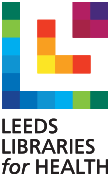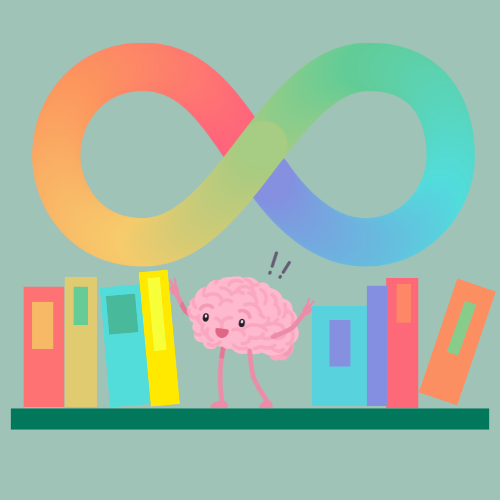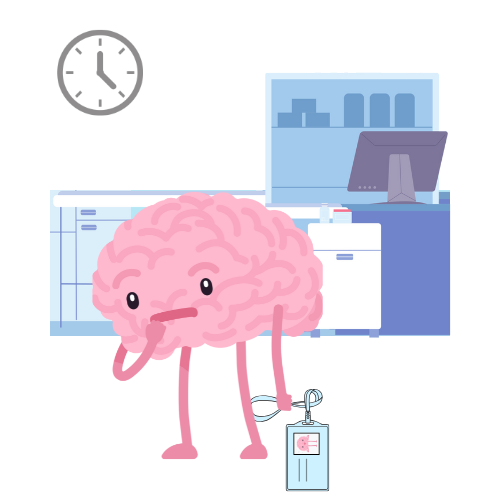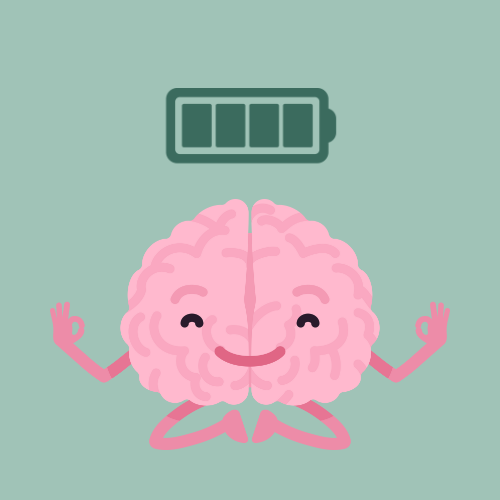Neurodiversity in the Healthcare Workforce
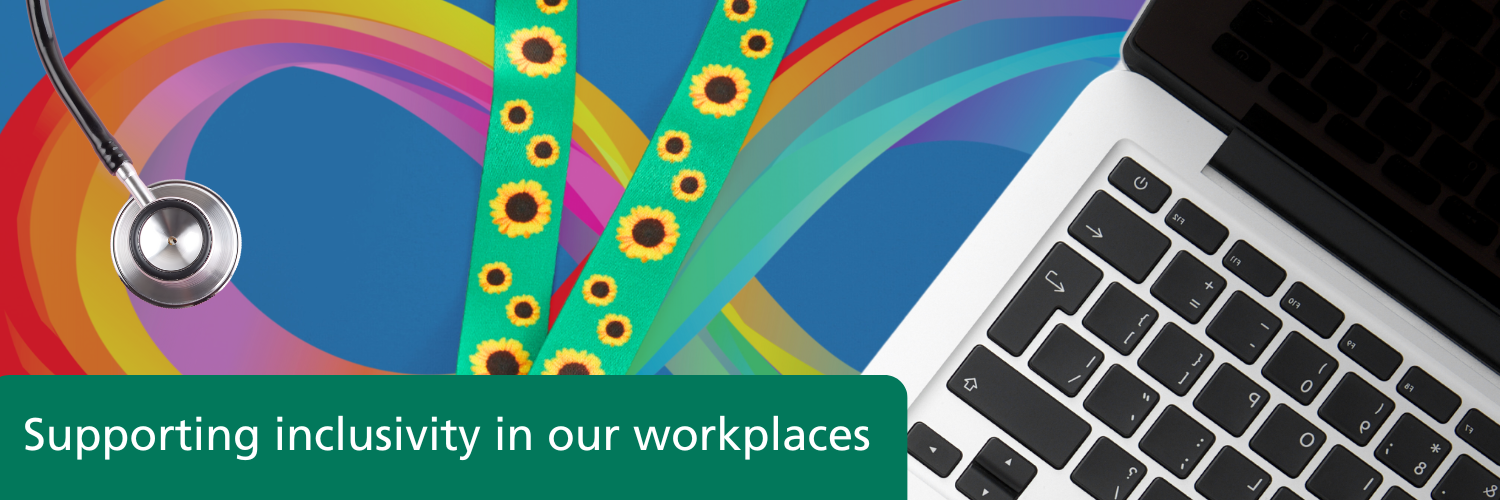
Welcome to our dedicated topic page supporting neurodiversity and other hidden disabilities in healthcare workplaces across Leeds. Whether you’re an employer looking for further tools to enhance workplace accessibility or an employee seeking guidance and support, you’ll find a wealth of resources signposted here.
If there is something else that you would like to see added here or you would like the latest updates directly emailed to your inbox, please contact us.
Published research
Medical education: Accommodating students with ADHD Medical Teacher 2024, 46(7) 925–930
Attention-Deficit/Hyperactivity Disorder (ADHD) is a neurodevelopmental disorder that affects a significant number of medical students worldwide. It is poorly recognised by educators, and therefore inadequately accommodated for in educational strategies. In order to investigate this further, a literature review and pilot survey were conducted. Given the prevalence and potential impact of ADHD on higher education, it is important to gain deeper insight into how medical educators can best engage and support students with ADHD. This knowledge may potentially reduce the negative impacts of this neurodiversity on students and support their learning and well-being throughout their medical career. Ultimately this may help doctors to achieve their full potential, especially in clinical decision-making.
Feeling like an untapped resource. Experiences of working life among nurses with ADHD and/or autism: An interview study International Journal of Nursing Studies 2024, 158 (104857)
ADHD and autism are common and increasing neurodevelopmental disorders in the world and also occur among nurses. However, almost nothing is known about nurses with these diagnoses. To promote high-quality care provision and well-being in the nursing workforce, it is important to discover more about these nurses. Therefore, in the present study, we aimed to describe how nurses with ADHD and/or autism experience their working life. One overarching theme and seven subthemes emerged from the analysis. The theme "feeling like an untapped resource" reflected the subthemes: 1) Being passionate about one's job, 2) having strengths and talents to use in working life, 3) a stressful and disturbing work environment inhibits personal strengths, 4) managers show goodwill but lack knowledge and resources, 5) feeling appreciated but socially different among colleagues, 6) using a variety of strategies to facilitate working life and 7) toward an uncertain future. Nurses with ADHD and/or autism experience having abilities and talents that are useful in the nursing profession. However, they feel that the physical and organizational working conditions and lack of managerial support entail challenges that prevent them from making optimal use of their strengths.
Neurodiversity & nursing: Reflection of a final year general nursing student
Nurse Education Today 2024, 141 (106318)
Autism Spectrum Disorder is neurodevelopmental disorder, the manifestations of which and levels of support individuals may require vary greatly. Although there is a plethora of information regarding supporting autistic individuals in higher education and the workplace, there is a paucity of information regarding both autistic nurses and nursing students. This paper presents an overview of autism spectrum disorder, the particular features of which are relevant in nursing professions and in the context of higher education; and highlights issues surrounding disclosure and implementing reasonable accommodations. It concludes with a reflection of the author's experience as an autistic nursing student.
Autistic nurses: do they exist? British Journal of Nursing 2023, 32(4) 210–214
Autism spectrum disorder is an increasing diagnosis on a global scale. Despite limitations related to the diagnosis, many people with autism are active in the workforce, often within the health care sector. It is reasonable to assume that some of those are nurses. There are very few examples of nurses with autism in the literature, mostly in non-scientific contexts, and that these mention both autism-related strengths and limitations at work. A conclusion is that research about nurses with autism is almost non-existent, and it is high time to conduct explorative research in this area. If employers are given the knowledge and the ability to support the needs of nurses with autism, it is likely to benefit the health of the individual nurse, the psychosocial working climate and patient safety.
Qualitative Analysis of the Experiences and Perspectives of Autistic Speech-Language Pathologists American Journal of Speech-Language Pathology 2023, 32(5) 2178–2191
Purpose: Supporting autistic speech-language pathologists (SLPs) is critical to expanding diversity within the field of speech-language pathology. The purpose of this study is to better understand how autistic SLPs reconcile tensions between their personal and professional experiences and negotiate the intersection of these identities. Conclusions:This study represents a first step toward understanding the unique strengths of autistic SLPs and the challenges they face. They can be better supported throughout their education, training, and careers. Our field must embrace and promote the neurodiversity paradigm to truly support all our colleagues and clients.
The experiences of autistic doctors: a cross-sectional study Frontiers in Psychiatry 2023, 14 (1160994)
Introduction: Medicine may select for autistic characteristics. As awareness and diagnosis of autism are growing, more medical students and doctors may be discovering they are autistic. No studies have explored the experiences of autistic doctors. This study aimed to fill that gap.
The Experiences of Medical Students and Junior Doctors with Dyslexia: A Survey Study International Journal of Social Sciences & Educational Studies 2020, 7(1) 62–71
Little research exists concerning dyslexia in medical education. A qualitative study highlighted issues such as bullying and a lack of support. This project aimed to quantify those findings. An online survey was sent to junior doctors in parts of the United Kingdom. Seventy-five participated. Most (53%) were diagnosed with dyslexia at university / medical school. Most reported that dyslexia impacted upon their selfimage (59%) and self-esteem (73%). Nearly half (46%) felt it influenced their career pathway choices within medicine. Participants reported bullying at medical school – from peers (24%), from academic teachers (14%), and from clinical teachers (27%); and also at work – from peers (25%), from academic teachers (13%), and from clinical teachers (23%). 88% reported that foundation schools provided no support, 92% that NHS Trusts provided none, and 90% that their deaneries provided none. The sorts of supports which seemed to be lacking were “psychological” or “pastoral” supports.
Dyspraxia in clinical education: a review Clinical Teacher 2018, 15(2), 98–103
The stereotype of the student with dyspraxia as ‘clumsy and disorganised’ may cause clinical teachers to be concerned about the student's performance in a clinical environment; however, if it is understood that dyspraxic students possess many strengths, as well as weaknesses, it may be that some stereotypical myths will be dispelled and more effective support offered to them. This review considers research surrounding the experiences of students and health professionals with dyspraxia within higher education (HE), alongside the personal experiences of EW, in order to inform the development of clinical teachers with respect to their support for learners with dyspraxia.
Doctors with dyslexia: strategies and support The Clinical Teacher 2017, 14(5) 355–359
Looking beyond dyslexia as an individual doctor's issue requires adjusting a working environment to better serve the needs of doctors with dyslexia. With an increasing number of doctors disclosing dyslexia at medical school, how can educators best provide this support? Our research looks at the impact of dyslexia on clinical practice and the coping strategies used by doctors to minimise the effect. As a result of the research there is now practice available for educators to identify evidence-based strategies and resources.
Key reports, publications and guidance from governing bodies
Disability in the medical profession: survey findings 2020
BMA, 2020
Discussing disability in the workplace
BMA, 2023
Landmark review calls on employers to boost support for autistic people
Department for Work and Pensions, UK Government, February 2024
Building disability inclusive workplaces
NHS Employers - Equality, Diversity and Inclusion Group (EDIG), 4 March 2024
The mental health of disabled staff
NHS Employers, 11 December 2023
Workforce Disability Equality Standard (WDEAS)
NHS England
NHS Learning Disability Employment Programme
Equality, diversity and health inequalities, NHS England
Guidance for and to support neurodivergent SLTs in their careers and to create inclusive workplaces
- Royal College of Speech and Language Therapists
UK Government, 2014
British Sign Language Act 2022
UK Public General Acts, 2022
British Sign Language (BSL) Act 2022 and explanatory notes: BSL version
UK Government, 2022

Neurodiversity books and book club
This book club aims to provide support to neurodivergent people and educate those wanting to learn more. It is run by Zara, our receptionist at LGI library, who is neurodivergent. The club is bi-monthly, online, and 30 minutes long. There is a mix of fiction and non-fiction, focussing on neurodivergent people and their experiences. The Leeds libraries for Health do not have the ability to provide all book club books, but signposting is included in emails. For each meeting members are sent a form to identify when they are available. A month before they are sent a link to the Teams meeting, including the agreed date and time.
Further information on the Neurodivergent Book Club.
Do also feel free to browse our neurodiversity book collection consisting of both clinical and wellbeing books.
Resources and support from non-profit organisations
Provides lots of local information on support and strategies for Autism in Leeds.
Afiliated with the British Dyslexia Society, Yorkshire Rose Dyslexia provides a local Dyselxia helpline and a tutors / assesors directory that includes including specialists that provide workplace consultation.
ADHD Foundation: The Neurodiversity Charity
Includes a variety of resources and webinars on ADHD and other types of neurodiversity. They also provide a guide to neurodiversity in the workplace for employers.
- Confidential counselling sessions on a short or long-term basis according to individual needs.
- Advocacy and general advice on autism and Asperger’s Syndrome per-se (for clients only).
- A one-off emotional support service for ‘flare-up’ situations and experiences.
- Private messaging via ‘Action for Asperger’s’ Facebook page.
- Brief (free) email support may be available depending on individual circumstances.
A key source of information on supporting Dyslexia in the UK that also includes information on dyscalculia and common co-occurring neurodiversity. They procide a helpline, a dedicated page to rights and support in the workplace and a set of guides for employers.
Provides a wealth of resources, including guidance on reasonable adjustments for employment
A key place to find resources on Autism and current developments towards being more inclusive. The website includes a wide variety of resources like the online community network as well as their dedidacted page to employment guidance for both employers and employees.
Provides resources on various aspects of working with a stammer. Including job hunting, interviews, guidance on conversations about reasonable adjustments and bullying support.
The PDA society provide a variety of Uk based resources on adult life with PDA, including a page devoted to PDA workplace adjustments.
Tourettes Action works in England, Wales and Northern Ireland and is the leading support and research charity for people with Tourette Syndrome.
One relevent research project to this topic guide is their research project on Diversity and Productivity.They also provide research grants if you are interested in another areas of research arround Tourette's.
In terms of support for individuals with Tourette's they provide a helpdesk, applications for a ID card to quickly explain your tourette's and a range of factsheets signposting resources for adults with tourette's including employment support for both employers and employees. They also provide free elearning courses.
Although this charity is based in Liverpool with services for local residents, it does also provide and signpost resources and information that are useful no matter where you live in the UK. This includes it's support pages with practical guidance, it's virtual coffee mornings or it's A-Z guide to neurological conditions.
Movement Matters is an organisation commited to making DCD/ Dyspraxia research accessible. The research infographics on the research summaries page are good inspiration for presenting other research in a more visual way.
Networks / support groups
Active Leeds - Disability Sport
Local sports groups provided by Leeds City Council. It includes groups that are supportive of non-visible disabilities.
Autistic Doctors International
Founded by Dr Mary Doherty, Hon Clin Research Fellow at Brighton and Sussex Medical School and Clinical Associate Professor of UCD Dublin School of Medicine. She even provided a blog post for the BMA on the topic.The network provide a series of recordings of webinars provided by healthcare professionals. One of which is the fantastic presentation by Dr Sebastian Shaw at the bottom of this page. The website also provides a repository of publications.
Includes a range of resources on their website, some of which may be useful to other clinical professions.Lots of useful informatiom for non-visible disabilities including their flowchart on what to do in the event of a new diagnosis. The founder is a GP from Leeds.
RCN Learning Disability Nursing Forum
If you work in nursing or midwifery you can benefit from a wealth of resources on learning disability support through joining.
West Yorkshire ADHD Support Group
West Yorkshire support group for indivisuals with ADHD. Leeds meetups are held in the management suite of the White Rose shopping Centre. Peer Dates are announced on the WYADHD peer support group page and any amendments are provided on the WYADHD Facebook group.
ADHD Aware run a number of virtual groups. Sign up is through their mailing list which also provide information on any one off events related to ADHD.
Yorkshire Tourette's Social Media Support groups
A fairly comprehensive list of local social media group related to Tourette's, collated by TIC Yorkshire.
A network advocating for Support and Understanding for Neurodivergent Nurses
Tourette's action - online support groups
As well as the online support groups, Tourette's action provide a list of Tourette's friendly organisations such as an organisation dedicated to nervous drivers.
allergictosound.com - Misophonia forum
This website was compiled by a person with misophonia based in London but includes a range of international information resources such as repositories of published research, articles/opinion pieces, informative mixed media.Do feel free to explore the website, as well as the forum. Information on the founder/ formation of the website was featured in the Metro, among many other news pieces.
Library Services
Is there an information need we are not meeting on this topic?
Let us know and we can provide the results with a literature search.
Want to undertake your own neurodiversity health research?
Not sure where to start? We can provide training on how to search and appraise resources on our healthcare databases.
Need a quiet space away from sensory distractions?
Our libraries provide a range of quiet study spaces. Further information on your local study spaces.
